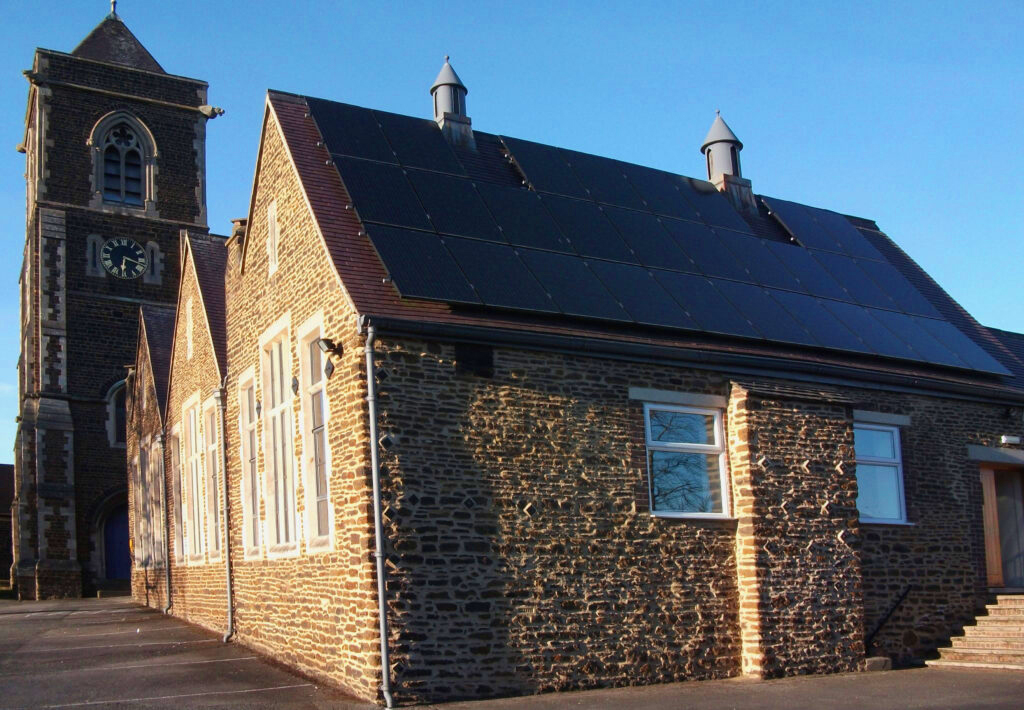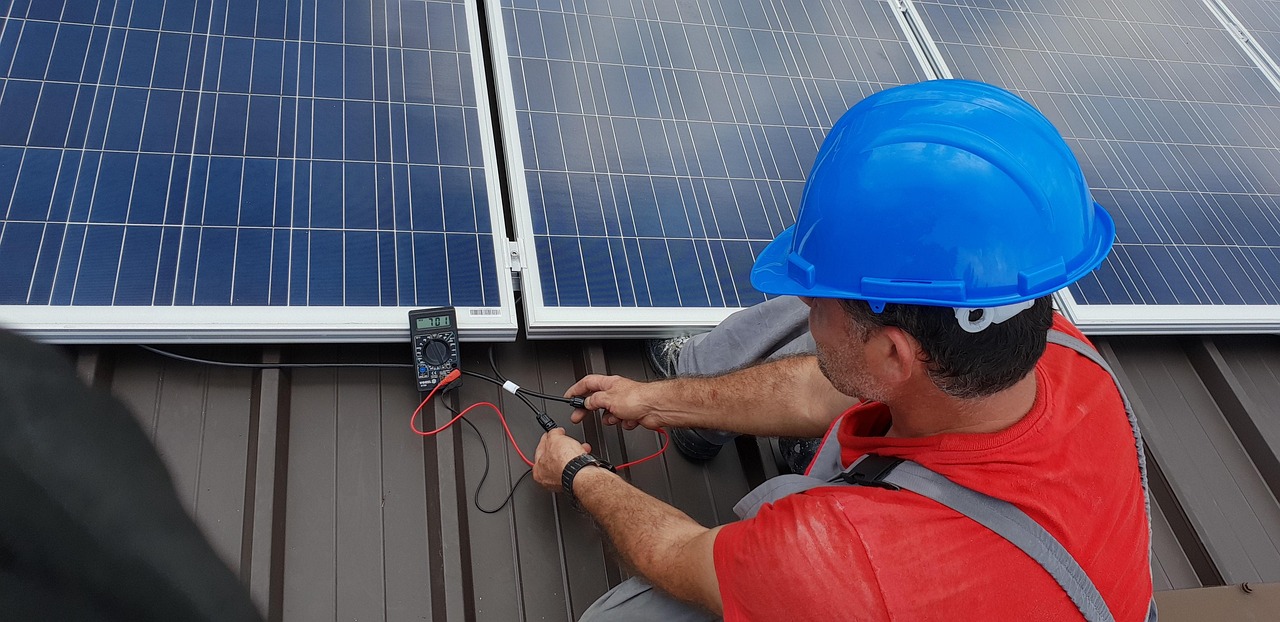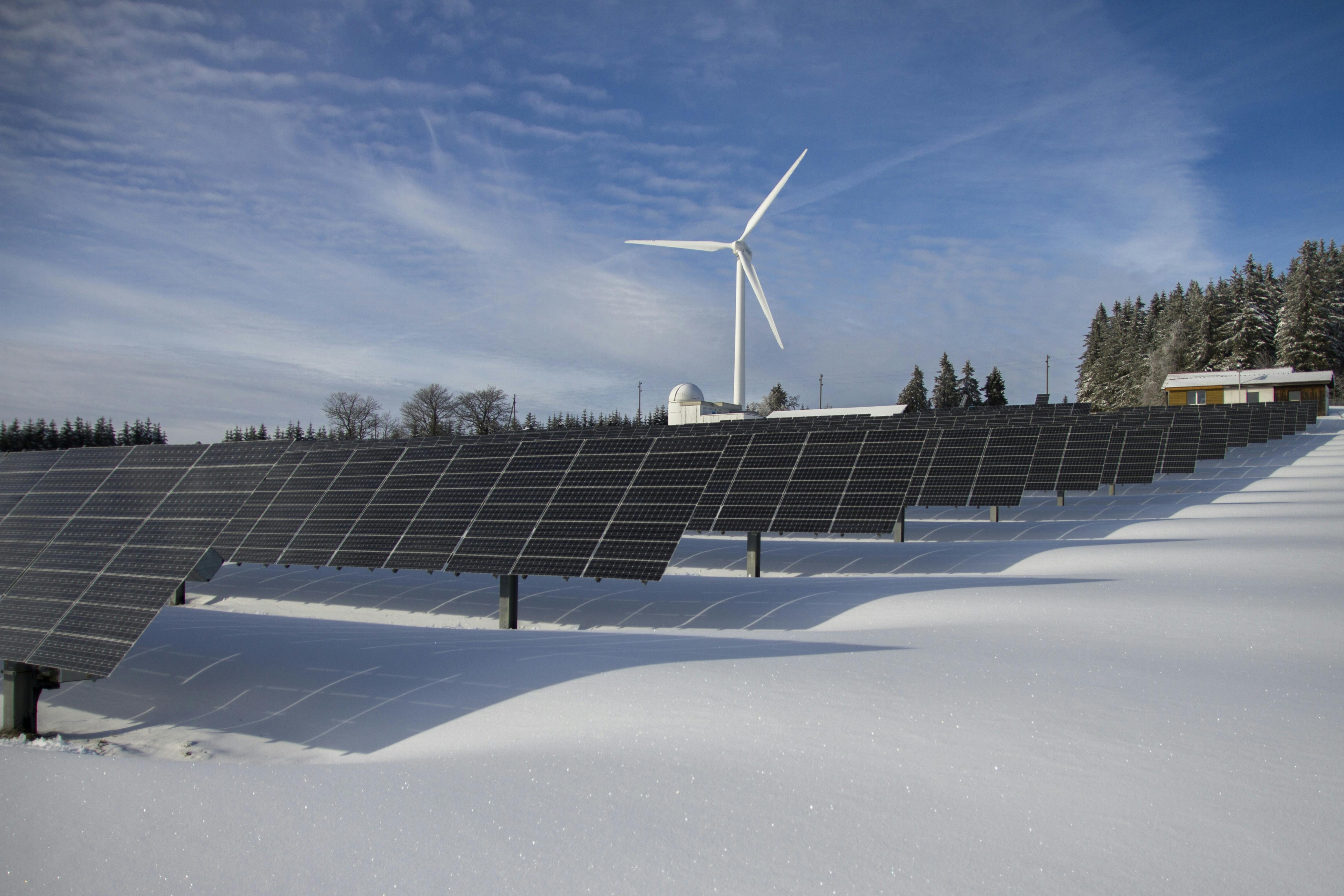A Guide To Solar Panel Requirements
Explore solar panel requirements, from roof suitability to financing, discover the essentials for green living.

Curious about harnessing the sun's power for your home, but not sure of solar panels requirements? This guide outlines all the prerequisites for solar panels. Meeting these criteria ensures a seamless, hassle-free installation.
If you fall short, fret not; solar panels may still be suitable. Consult our green home gurus or employ our solar panel calculator for insights into output, costs, and savings. This tool offers a clearer perspective on the efficiency of solar panels tailored to your needs.
Key Solar Takeaways:
What Are The Requirements For Solar Panels?
Understanding the requirements for solar panels is crucial for anyone considering a shift to clean, renewable energy. Let’s break down the key factors that influence the suitability and efficiency of solar panels for your home:
- Roof Suitability:
Assessing the condition and orientation of your roof is paramount. Solar panels thrive in unobstructed sunlight, so a roof with a south-facing aspect and minimal shading provides optimal conditions. Moreover, the structural integrity of the roof is essential, ensuring it can bear the weight of the intended amount of solar panels. More detail into roof requirements will be covered later in this guide.
- Sunlight Exposure:
Solar panels operate at their best when exposed to direct sunlight. Ensure that your location receives an ample amount of sunlight throughout the day. Factors such as nearby buildings, trees, or geographical features can impact sunlight exposure, so it's crucial to evaluate the surroundings.
- Energy Consumption:
Understanding your household's energy consumption is the first step in determining the number of solar panels you'll need. By accurately calculating your energy usage, you can ensure that your solar panel system is appropriately sized to meet your specific needs.
The goal is to match the system's capacity with your energy demand, thereby maximising efficiency and optimising the return on your investment. This approach not only helps you achieve significant savings on your energy bills but also contributes to a more sustainable and eco-friendly home.
Recommended Guide: How Many Solar Panels Do I Need To Power My House?
- Quality of Solar Panels:
Invest in high-quality solar panels with a track record of efficiency and durability. The type of solar panel, its efficiency rating, and warranty terms are all crucial considerations. Reliable solar panels ensure a more sustainable and efficient energy production system.
At MakeMyHouseGreen, we use Monocrystalline Solar Panels, as they are significantly more efficient than thin film or Polycrystalline panels.
But why should you choose these specific solar panels?
- Crafted from a single crystal structure, monocrystalline solar panels are known for their efficiency and sleek design.
- Their higher efficiency makes them space-efficient, ideal for installations with limited roof space.
- While they come at a premium cost, the long-term energy savings often justify the investment.
- Professional Installation:
While some may attempt DIY installations, it's often advisable to enlist the services of professional solar installers. These experts not only ensure the correct installation but also provide valuable insights into maximising energy production.
By addressing these key requirements, you'll be well-equipped to embark on your solar panel journey. Keep reading to explore additional nuances and tips for a seamless transition to solar energy.
Roof Suitability for Solar Panels
When considering the installation of solar panels, understanding the dynamics of your roof is crucial. Several factors influence the suitability of a roof for solar panels, impacting the overall effectiveness of the system. Let's look into these considerations:
Orientation and Tilt:
South Facing Orientation: A roof facing south enjoys prolonged exposure to sunlight, making it the optimal choice for solar installations in the Northern Hemisphere. The inclination or tilt angle of your roof is equally essential. Aligning it with the local latitude or using adjustable mounting systems ensures efficient energy capture, adjusting to seasonal variations. This being said, having a west or east facing roof isn’t the end of the work. Solar panels can still generate a good amount of power regardless of the orientation.
Recommended Guide: Do Solar Panels Need Direct Sunlight?
Roof Material:
Asphalt Shingles: The simplicity of asphalt shingle roofs makes them a feasible option for solar panel installations. Installers can securely affix solar panels without compromising the integrity of the shingles.
Metal Roofs: Durable and conducive to solar installations, metal roofs offer a sturdy foundation for solar panels. Proper equipment ensures a secure and enduring fit.
Tile Roofs: Tile roofs demand careful installation to prevent damage. Seasoned installers can guarantee a secure fit without jeopardising the tiles' integrity.
Flat Roofs: Ideal for solar installations with tilt frames, flat roofs with solar panels need waterproofing and proper ballast to maximise sunlight exposure.
Shade and Obstructions:
Tree Coverage: Shading caused by nearby trees can significantly diminish energy production. Minimising or eliminating obstructive branches may be necessary.
Nearby Structures: Consider adjacent structures that may cast shadows on solar panels. Analyse potential shading throughout the day and seasons to maximise sunlight exposure.
Roof Condition:
Structural Integrity: Ensure that your roof can support the additional weight of solar panels. A comprehensive roof inspection is vital to address any repairs or reinforcements needed before installation.
System Size and Energy Needs
Solar panel systems come in various sizes, and determining the right one for your energy needs is a critical aspect of the planning process.
Before installing solar panels, it's essential to assess your energy consumption. This involves evaluating your historical electricity usage, considering potential changes in consumption patterns, and factoring in any future energy-efficient upgrades. Solar professionals typically use this data to calculate the system size required to meet your energy needs.
The unit of measurement for solar system size is kilowatts (kW) or kilowatt-hours (kWh). The goal is to design a system that generates enough electricity to cover, or ideally exceed, your expected energy consumption. Factors like the angle and orientation of your roof, local climate conditions, and shading must also be considered during this calculation.
An appropriately sized system ensures optimal performance over the system's lifespan. Solar professionals can guide you in choosing the right size by considering your specific energy needs, available roof space, and budget constraints.
Remember, the goal is not only to meet your current energy requirements but also to accommodate potential future changes. Whether you're planning to expand your household or adopt additional energy-intensive appliances, accounting for these considerations ensures that your solar panel system remains effective in the long run. Our solar panel calculator is an ideal tool for this as it takes your estimated energy use into consideration when recommending a system size.
Budget and Financing Options
When planning your solar panel installation, it's essential to establish a realistic budget. Factors influencing costs include the size of your home, energy needs, and the type of solar panels chosen. Evaluate your financial capacity and explore cost-effective options without compromising quality.
Make your green dreams a reality with various financing options and incentives available. Explore schemes such as the Smart Export Guarantee which helps you sell excess solar energy back to utility companies.
Maintenance Requirements
To keep your solar panels operating efficiently, adopt routine maintenance practices. Regularly clean away dust and debris that can accumulate on the surface. Ensure no shading issues from nearby vegetation and trim as needed. Additionally, utilise online monitoring tools to track system performance and identify potential issues early on.
Routine inspections are paramount for the optimal performance of your solar panels. Schedule professional inspections at least annually to assess the overall health of the system. Inspectors will identify and address issues such as loose wiring, corrosion, or wear and tear. By taking a proactive approach to maintenance, you ensure that your solar panels consistently deliver peak performance, maximising your sustainable energy investment.
Final Thoughts
In summary, grasping the intricacies of solar panel requirements is pivotal for a successful green transformation. We've explored the need for a suitable roof, navigated local regulations, discussed system sizing, and delved into financing options. Recognising these essentials ensures a seamless journey toward sustainable living.
Ready to embark on your eco-friendly journey? Get started today by using our solar panel calculator to help you make an informed decision, using the latest solar intensity data for your area. For any more information get in contact with our green home gurus who will help you every step of the way.
Let's create a brighter, sustainable future together!
Ready to see what you can save?
Our solar calculator is 100% free to use. Enter your postcode below to get started.

Based on 400+ Trustpilot reviews






